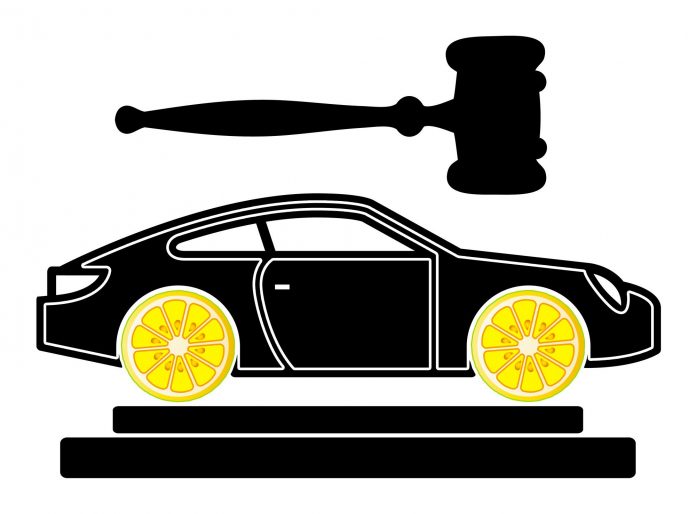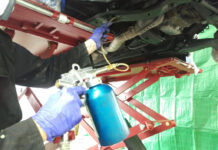Buying a car is one of those exciting moments which deserves to be captured. You may have purchased a brand new vehicle or exchanged your old one with a car you wanted to purchase. After your purchase, the most natural thing for you to expect is that your vehicle should work smoothly without giving you any problems for a reasonable period, say five years. But right after you buy this car, you notice frequent breakdowns and a lack of standard performance. It can be something you were not expecting out of a new car, and going to the dealership, again and again, is a draining task that you don’t want to get involved in. For such a case, you might have got yourself a lemon car, which means you also need to be aware of the lemon laws in your country.

Lemon Laws are a specific type of laws designed for people who have purchased a car or any other product, but it is not up to the standard of performance as expected or doesn’t meet the quality standards.
Even though citizens can seek help from the law, it is not applicable in every situation. The owner who has purchased the car can use the lemon law if problems with the car arise within the warranty period. Not everyone wants to be involved in such a tedious process, but if you have found yourself in such a situation where you have recently bought a lemon car, here are certain things that you should know about the lemon laws in California. If you are thinking of starting your own business you might want to start by opening a California LLC.
1. Not every automobile will qualify as a lemon
You might be facing a problem with your new car, but it will only qualify as a lemon, depending upon the situation itself. If your car’s door handle is somewhat loose, it will not be considered a lemon in many states. But suppose your car is persistently breaking down or having a faulty break even after visiting the dealership, and nothing is sorting out the problem. In such cases, your vehicle will be considered a lemon, and the lemon law will favor your interest. You will be able to claim for a refund or exchange of the car even if the warranty period has exceeded in some cases involving life risk or safety risk. However, if an owner damages the vehicle himself, he cannot claim compensation using the lemon law.
2. Solutions
Car owners are usually compensated with a refund amount or an exchange. However, you must be proactive in informing the manufacturer about the problem within the warranty period. Although the manufacturer would come to know by the number of times you visit the dealership, it is best to inform them. If a manufacturer is not compensating with an exchange or refund, you can seek help from an expert lawyer at Quill & Arrow, LLP. As vehicles depreciate over time, your compensation amount will be lower. If you wait for a more extended period, then the amount of depreciation will increase.
3. Negotiation
Getting compensation might not be very easy, so you need to make sure that you are ready before deciding to take matters to court. Although most manufacturers might as well give you a good deal for your lemon car, many may not. It is best to prepare for such a contingency by being up to date with all repairs that the vehicle has gone through and maintaining copies of the same. If you are not satisfied with the compensation being given, do not feel pressured to accept it and take the help of the lemon laws.

4. Consider manufacturer’s warranty
You have to identify yourself as the owner of the lemon car by producing proof of identity and evidence of purchase for a lemon law claim. Even if the car manufacturer has modified and made your vehicle work somehow, the areas which are challenging to repair can be considered for compensation. Even if the manufacturer does not compensate for the parts it has already worked on, it will reimburse you for the ones that are difficult to fix.
5. Compensation for leased vehicles
Lemon law claims are made on all vehicles that can produce a copy of the warranty. The law is valid for all cars on lease, considering a valid warranty attached to it. If someone has rented a vehicle for a while, has a specific warranty, and is not performing satisfactorily or according to performance standards, it will be considered under the lemon law for compensation. However, bought privately cannot be considered under this protection as the owners have purchased them at considerably low prices.
An important thing to consider when you want to make a lemon law claim is that every state has a different approach towards a lemon vehicle and deals with such a problem differently. You can take help from state and federal laws to better understand your state’s rules and what counts as a lemon. You can also go through summaries of Lemon Law to gather all the essential information about it.
As per California’s Lemon Law, the dealer has a maximum of four chances to repair a car, and if it involves risk of life and safety, two chances are given. If the dealer cannot fix it within that time frame, the car will qualify as a lemon.

Vehicles cannot be manufactured with hundred percent accuracy, and that is why a warranty period is given to the buyer for the amount of investment made in that item. Concerning problems surface for some vehicles, you need to exercise your consumer rights and implement the lemon law. An integral part of this process will involve dealing with the manufacturer at court if he refuses to settle the claim. At Quill and Arrow, you can take the help of expert Lemon Law Attorneys who possess the knowledge and skills to guide you on this path and make sure that you get the compensation you deserve and be satisfied as a consumer.









